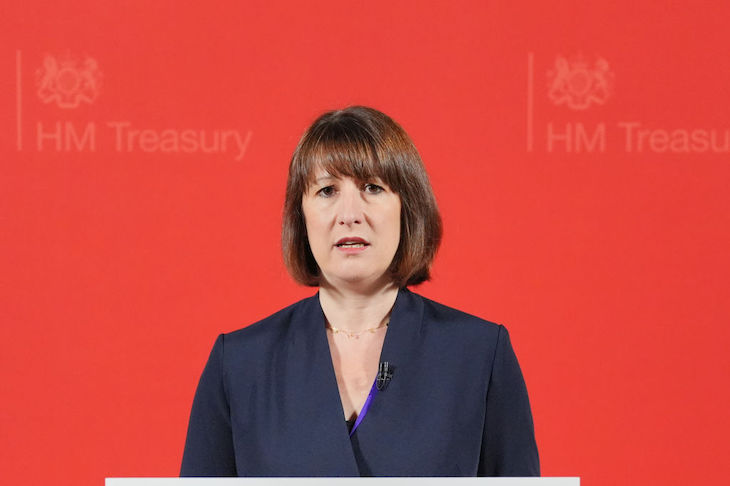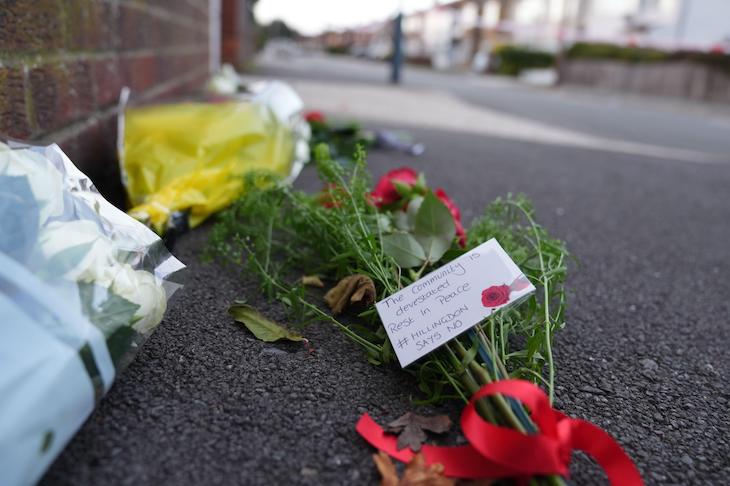It has been widely observed that we live in a society marked by cancellation, censorship and cowardice in the face of mob rule. To this we might add a fourth ‘c’: capitulation.
The decision announced yesterday by Rachel Reeves to offer junior doctors an average pay rise of a 22.3 per cent in an effort to end the strikes is the most glaring example, being all-too-reminiscent of the catastrophic efforts by the craven Labour governments of the 1970s to placate the unions with inflation-accelerating pay-deals.
Whether this announcement, and the decision to give six million public sector workers including nurses, teachers and police officers rises of about 5 per cent, will satisfy today’s disgruntled is not yet clear. But the signs are already ominous. ‘I don’t think that this is a good deal,’ said Dr Robert Laurenson, co-chair of the British Medical Association junior doctors committee, speaking on Times Radio. ‘I think that this is the best deal possible but I think there are significant deficits in it. And I think doctors should rightly be sceptical about it.’
This reaction is no surprise, given that the original demand by junior doctors was a 35 per cent pay increase. And it is scarcely credible that the government’s offer will be the last we hear on the matter. ‘I am delighted that we have agreed an offer that finally paves the way to ending industrial action,’ proclaimed Health Secretary Wes Streeting. Fat chance. Trying to pacify demands with offers of money usually prolongs and worsens matters, as any student of the history of Medieval England will tell you.
This capitulation is sadly in keeping with the spirit of the times. Not withstanding the recent imprisonment of Just Stop Oil activists, militant environmentalists remain undeterred – as actions at Gatwick and Heathrow airports this week have shown – and they remain determined that public bodies should conform to their campaigns of intimidation.
This week climate activists will be holding protests at more than 40 National Trust sites in an effort to stop the charity banking with Barclays, owing to the bank’s links with the fossil fuel industry. Many literary festivals this summer have already duly obliged to activist demands, caving into mob rule, so it’s little wonder the fanatics feel rewarded and emboldened. Oxfam has already bowed to pressure and cut its ties with Barclays.
Spinelessness is already the order of the day with this new Labour government. On Friday the Education Secretary Bridget Phillipson said that the government will block the Higher Education (Freedom of Speech) Act 2023, which would have compelled universities and students’ union to uphold free speech, fining institutions found culpable of infringing the rights of students, speakers and academics.
This was music to the ears of universities, of course, who protest unconvincingly that this Act would have imposed an intolerable level of bureaucracy. Yet universities have for decades now been a hostile environment for free speech because that’s the way the ideologues who run the humanities like it.
Cash-strapped universities are also terrified of the even more radical opinions of their own customers: students. This was made amply clear last week when Cambridge University announced that it would promise to review its investments in arms companies that supply Israel if students closed a pro-Palestine protest camp at King’s College.
This development of creeping capitulation should not surprise us
In reaction to demands from the protest group, Cambridge for Palestine, the university released a statement saying it would make a review if the camp were closed. ‘The university recognises the strength of feeling within the community. We therefore commit to working… to review our approach to responsible investment.’ Cambridge for Palestine responded by praising the university for taking a ‘long overdue step’, while adding that the promises were still ‘insufficient’. And nor will they ever be. Pay the proverbial Danegeld and you will never be rid of the modern-day Dane.
This development of creeping capitulation should not surprise us in a culture typified today by timidity, self-censorship and rule by herd sentiment. This very modern phenomenon has given energy to some very old modern human vices, threats of extortion and holding people to ransom, and some ancient human failings: cowardice and gutlessness.
I suppose we ultimately have ourselves to blame for the Chancellor’s announcement. It was we who put ‘our NHS’ on a pedestal, we who turned it into a precious and priceless artefact. No surprise then that along should come the junior doctors to mention in passing: ‘that’s a nice NHS you have there. It’d be a shame if anything were to happen to it.’
Listen to more on Coffee House Shots:







Comments